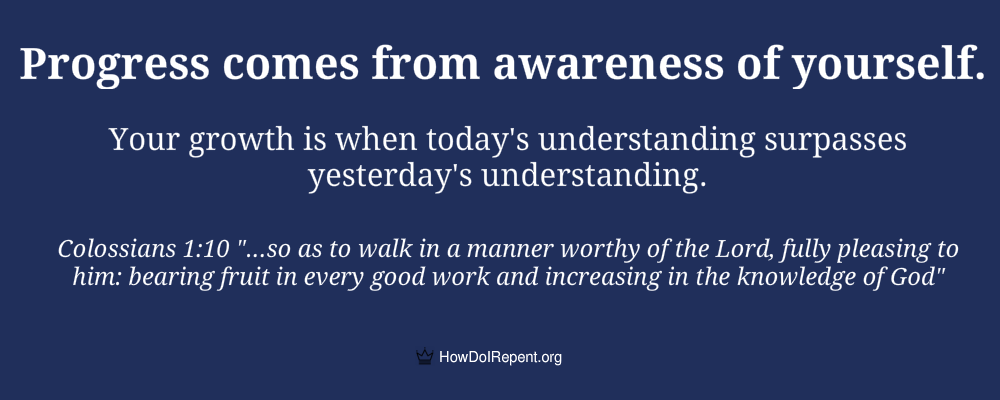Many ask the question, why did God create evil? God says in Isaiah 45:7,
“I form the light, and create darkness: I make peace, and create evil: I the Lord do all these things.”
This is difficult for some people to understand. People believe evil is there to make you fail, but in reality it is there to help make you a better person. God created the world with a plan of redemption. He also created the world so both good and evil have a part to play to complete that plan. Repentance is the tool God gave us to produce balance in our life between the good and evil. In the end, this world has seed that will produce fruit in the World to Come. In 1 Corinthians 15:42 Paul says,
“So will it be with the resurrection of the dead. The body that is sown is perishable, it is raised imperishable.”
In video 4 of Rabbi David Fohrman’s series on Grappling with Loss, he gives one of the best commentaries on this subject. He uses a good analogy of how a chocolate chip cookie recipe has many ingredients that taste terrible by themselves, such as flour or baking soda, but the recipe needs those bad tasting ingredients to produce the perfect cookie. Sometimes you need to have good and bad to be whole.
In order to have a better understanding of God, you need to know that God has created life with ingredients of good and evil in it. This concept can help you understand how your own characteristics can have both good and evil traits. Example you can love and you can hate, you can be arrogant and humble, kind or mean, or you can lie or be honest. Somewhere in the middle is where most of us are, but it is also very easy for anyone of us to go to the evil side rapidly. In the process of life, all of us initially fail and sin at some time or another.
God gave you will-power and the ability to turn the sin into godliness. Apart of the repentance process, God makes it possible for you to understand and acknowledge the wrong so you can express regret, and ultimately change your conduct. God wants you to regret your sinful actions, confront the reality of what sin has done, apologize (to God or whomever you wronged), and put effort into making the wrongs right.
Leviticus 26:40-41 says, “But if they confess their iniquity and the iniquity of their fathers in their treachery that they committed against me, and also in walking contrary to me, so that I walked contrary to them and brought them into the land of their enemies—if then their uncircumcised heart is humbled and they make amends for their iniquity…”
What Does it Mean to Regret Sin?
Many times, the effect of sin has guilt or regret. No matter how far you are away from God, or close in your walk with God, regret can motivate you. It gets you motivated to want to understand the sin, and then helps you be in a position to overcome it. You first need to choose not to sin in order to stop the sin. If you desire to do good, God gives you strength, along with your will-power, to overcome your challenges. God does not want you to fail, His intention is for you to succeed.
An article from chabbad.org stated, “Regret implies that one now knows something that one did not know before; that one’s earlier decision or deed was flawed or ill-informed; that one has now matured to the point that he can look back and reject a deficient past.” In order to regret sin, you must recognize the sin. It is God that even gives you the opportunity to recognize it.
Deuteronomy 29:4 says, “But to this day the Lord has not given you a mind that understands or eyes that see or ears that hear.”
Hosea 4:6 says, “My people are destroyed from lack of knowledge. Because you have rejected knowledge, I also reject you as my priests; because you have ignored the law [Torah] of your God, I also will ignore your children.”
In order to come to truth, God has to grant it to you.
Psalm 37:4 says, that if you “delight yourself in the Lord, and he will give you the desires of your heart.”
God’s Intention is to Use Sin to Beautify Your Behavior
If you read Psalms 60:6 in the Hebrew language you will find it says, “You have given those who fear You trials with which to be tested, in order to beautify [your behavior] forever.” God’s intention is always for something bad in your life to be turned into something good. Most people will fail because they believe that evil is there to make them fail, but in reality, it is used to strengthen them in their faith. Truth is a light, and the light is what we need to move forward in the right direction in order to overcome sin. The Rabbis say the main objective God has for you in this world is for you to transform your evil inclination (flesh) into godliness.
Regret makes you want to change the sin, and make the wrongs right. Much of the challenge to overcoming sin is you; it is all in your mind. Evil should always remind you of the good that God has placed in you. The Rabbis call this, “the advantage of life that comes out of the darkness.” The evil is there to cause you to work harder to overcome it.
Repentance starts when there is a desire for the things of God, and you start the process of abandoning sin, commit to banish it from your thought, and resolve in your heart never to commit the act again. If you regret your sin, many times that regret by itself does not change anything; it takes a lot of will-power and help from God. Complete repentance is when you have the ability to sin, but you make a decision not to do it any longer. You will be tested to improve your behavior. This improved behavior comes from really regretting the sin you are doing.
Understand Your Challenges
Everyone fails, that is just the way it is. Your primary enemy is yourself. The evil inclination is in you working to make you fail, and it is just doing the job it was created to do. Paul says in Galatians 5:17, “For the flesh desires what is contrary to the Spirit, and the Spirit what is contrary to the flesh. They are in conflict with each other, so that you are not to do whatever you want.” If you did not have evil in you, then what would you have to overcome? A Rabbi once said the evil inclination is our personal trainer to get the most and best out of us. It gives us a challenge to overcome, and we grow from it.
When you completely repent, you will overcome the challenge. It is important to understand each challenge is preparing you for your appointed position in the Kingdom. To start today to turn the evil things in your life into good, make a list. Determine what are the essential things you need to work on. What are some of bad habits in your life? Habits are not your nature, you have learned them, and you have to break the bad ones. Fight them from being a part of you by creating new habits that are good. A habit it something you are diligent at. Work on acquiring godly habits. Make sure that you are seeking God on a daily basis, and repentance becomes a habit you acquire by default.
Rectification (making wrong right) takes effort. Real repentance is to go from one extreme to another. An example is when a person who was a complete liar repents and becomes the most honest person alive, or a thief becomes a Pastor.

Here are some helpful ways the Rabbis explain how you can achieve repentance:
– Cry out to God
– Give charity
– Avoid temptation
– Put yourself on a correct path
– Exile to a different place
– Associate only with honest people
Whatever you are failing at the most in your life, is where you have the most potential for growth. Everyone has good and bad qualities. If you are failing in a sin, ask God to help you turn it into good.
God wants you to overcome sin, and has given you everything you need to understand how sin (evil) is good.
Back to Day 16 | Continue to Day 18

